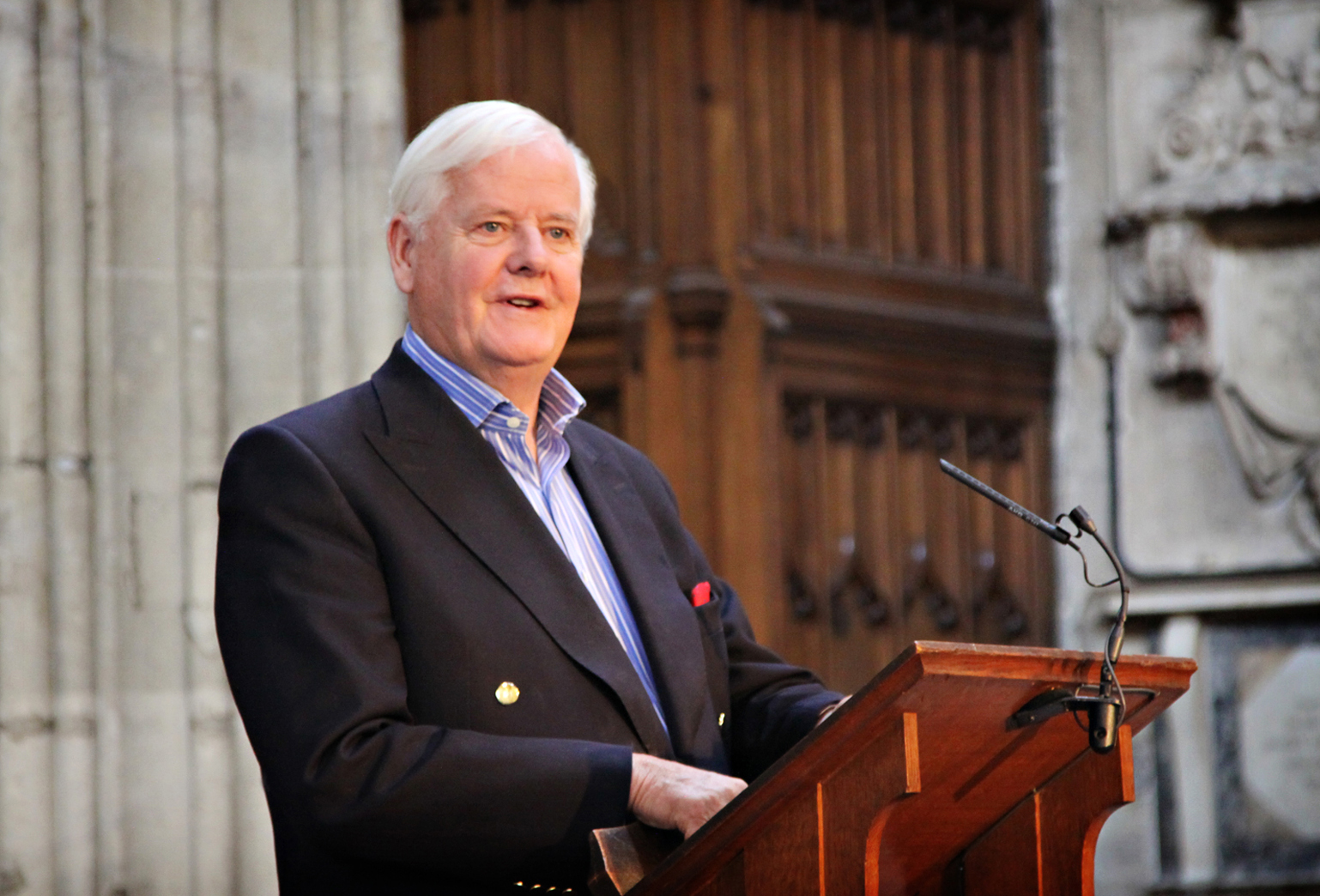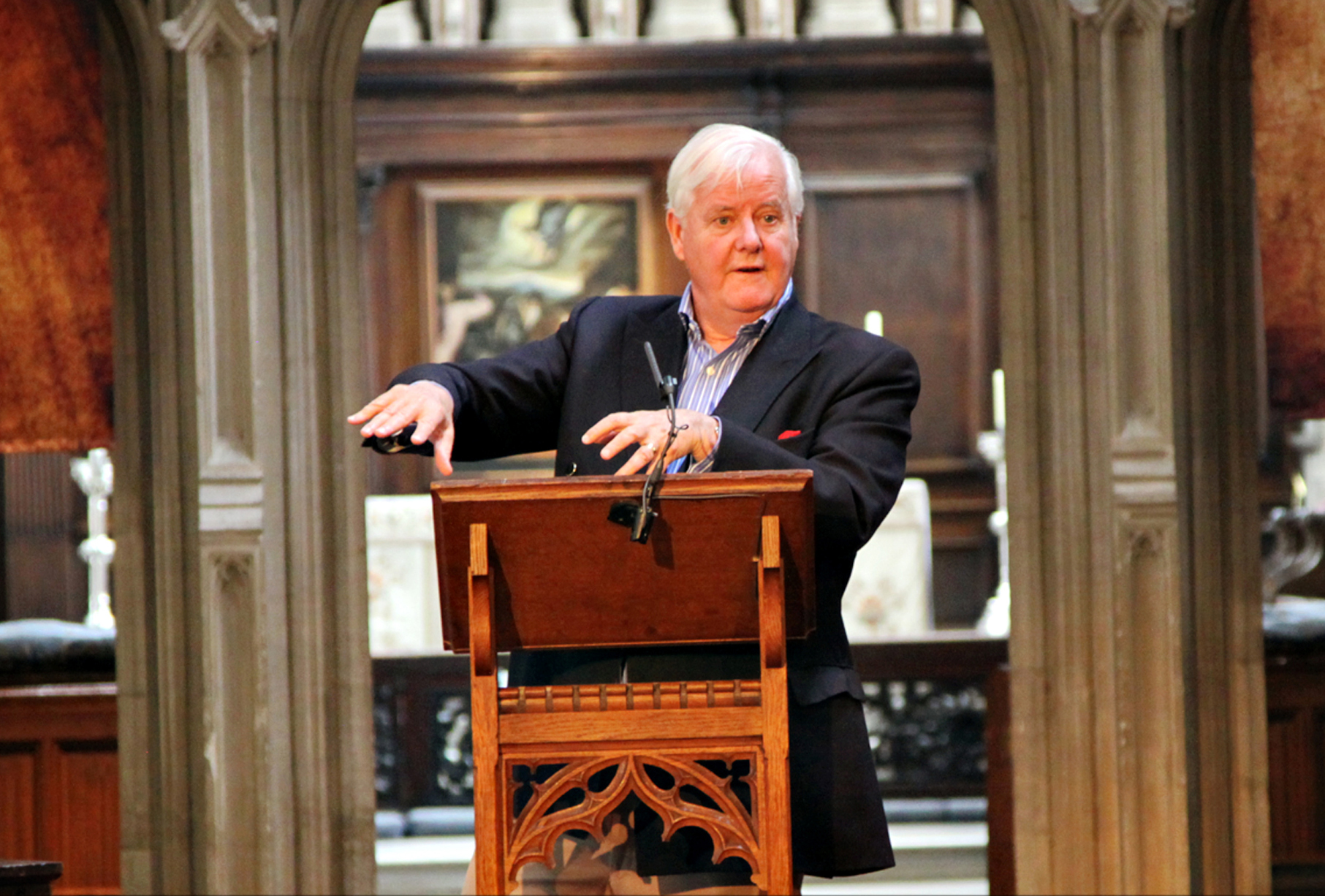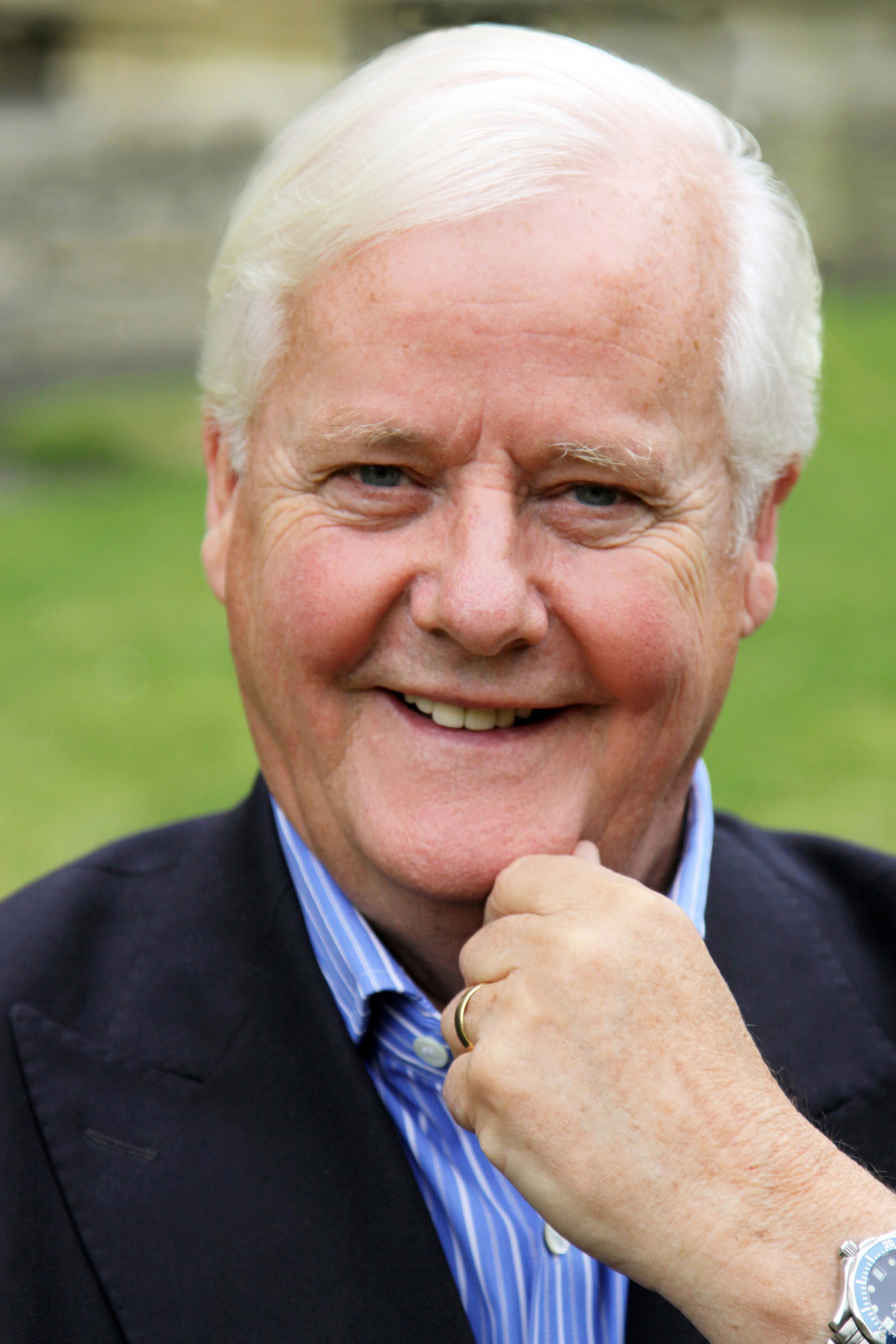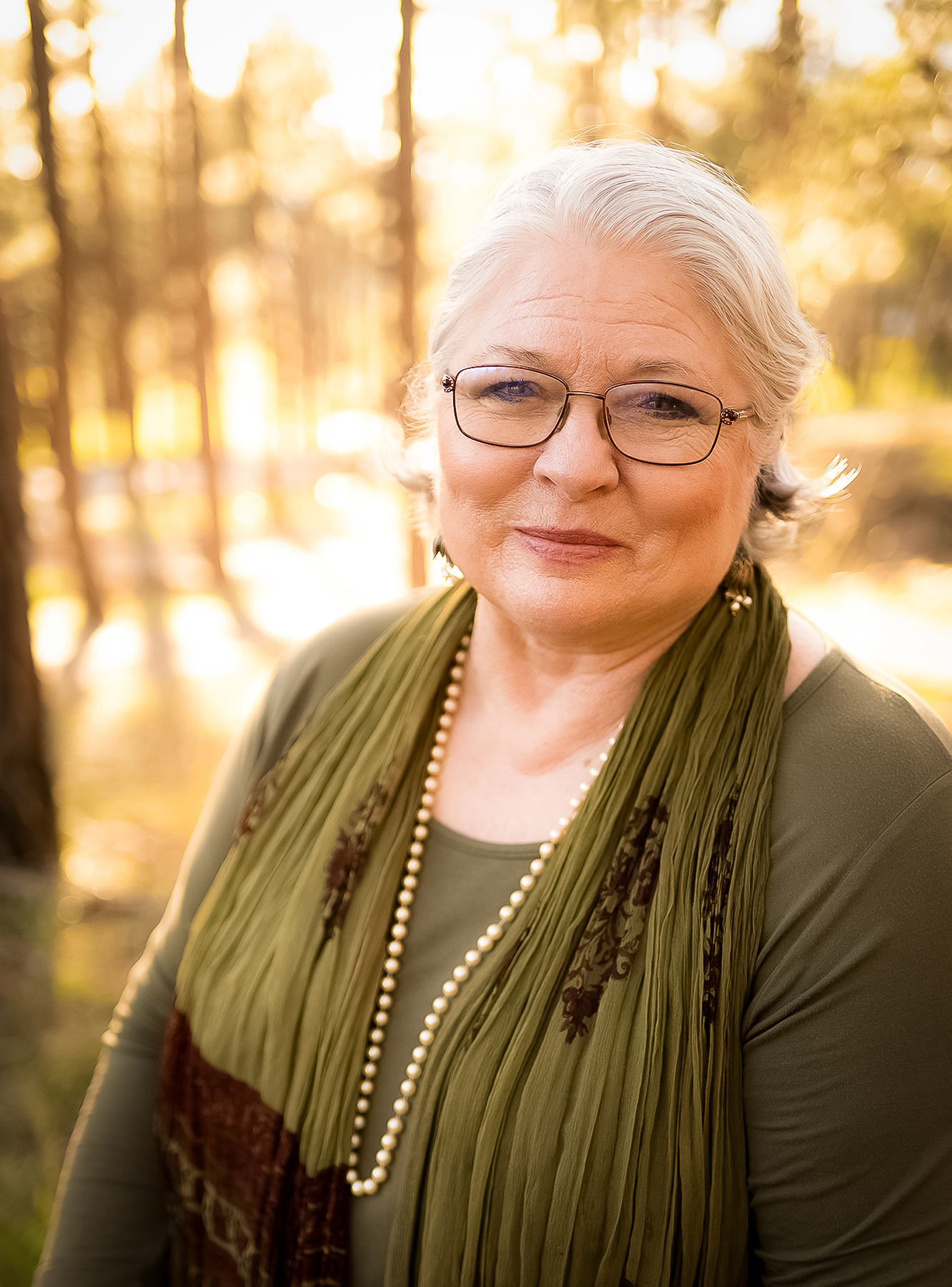We are continuing here with Part 2 of our interview with Os Guinness, acclaimed social critic and author and editor of more than 30 books, including his new release “A Free People’s Suicide”.
LES: The first time I ever heard the word “Christianly” used was in a conversation a couple of years ago with Kevin Belmonte, author of Hero for Humanity – A Biography of William Wilberforce and most recently, “Miraculous”. Then in a recent interview with Kevin he used that word again saying “Os’s books have had a great influence on me, teaching me, and so many others, what it means to think Christianly about the world. If we would be salt and light in our culture, if we would bring the best things of faith to bear on the lives we live before a watching world, Os’s books are among the best books written about those things.” In A Free People’s Suicide you make the statement “We need to regain our independence to act Christianly.” How would you define what it means to act ‘Christianly’? And related to that statement, what would you say we need to regain our independence from?
OG: It was Harry Blamires’ 1963 book The Christian Mind that used and popularized the term “thinking Christianly.” It simply means thinking in a Christ-centered or Christ-like way, and the same would be true of acting Christianly.
Its contrast today is thinking and acting in the world’s way. The Christian right was a disastrous case of the latter. They set out to do “the Lord’s work” – over, say, challenging abortion. But too often they did “the Lord’s work,” but in “the world’s way” – for example demonizing their enemies, when our Lord taught us radically to love our enemies.
We are now paying for such sub-Christian tactics in the massive defection from the faith by the younger generation. If only the Christian right had thought and acted “Christianly” as earlier Christian political reformers, such as William Wilberforce, did so admirably.
LES: In an interview with Neil Stavem on Faith Radio for the program Connecting Faith you made the comment that “We need to be more Christian but also more persuasive. Adventurous persuasiveness.” How do Christians of these particular times become more persuasive without resorting to either panic or attempts at manipulation?
OG: For fifty years now many Western Christians have strikingly lacked persuasion. At first the problem mostly affected our evangelism and apologetics, but then in the mid-seventies it was transferred to Christian witness in public life. Take the pro-life cause again. Too many Christians have preached, protested, and picketed, but not persuaded. As Wilberforce knew well in regard to the slavery issue, he had to win hearts and minds first and then pass the law abolishing the evil. So it is again with same-sex marriage today. We will only prevail with persuasion.
LES: C.S. Lewis wrote in “God in the Dock” that “As image and apprehension are in organic unity, so, for a Christian, are human body and human soul.” One of the great losses of the American public identity in the last century has been around the integration of faith and public character and the consequent behavior. We see this systemically now not only in public figures but widespread throughout the entire culture. Would you discuss the process for us of the privatization of faith and its impact on our national culture? How is this tied to the concept of “Not the wolves at the door, but the termites in the floor”?
OG: That last sentence, which many have picked up, is simply a way of saying that America’s main problem will always come from Americans rather than enemies and outsiders. You are right, though, to see the privatization of faith, virtue and character as a key example of the erosion of freedom today. Take the business world. Trust has eroded. No longer is a person’s word their bond. And the result? Every crime and scandal leads to a tightening of laws and regulations, and a multiplying of lawyers and lobbyists whose task it is to devise ways to get around the laws – which in turn means ever more laws and ever less freedom.
LES: In Chapter One of A Free People’s Suicide you write that the core crisis of our times is a crisis of identity. “Who do we think we are?” Is it possible for a nation to be as lost as we are to regain a real working comprehension of identity – as a type of Nebuchadnezzar story – and not remain lost?
OG: Americans today need what George Mason called “a frequent recurrence to fundamental first principles.” Needless to say, that is easier said than done, because it requires three things: first, an understanding of the first principles; second, an honesty to acknowledge where we have lost them; and third, a courageous leadership to point the way back – and therefore forward. The U.S. conspicuously lacks all three of these at the moment.
LES: A term you use in A Free People’s suicide is “cut flower civilization” – would you clarify what that means?
OG: A fancier term would be a “ legitimization crisis,” or a “crisis of cultural authority.” In other words, the idea and principles that once made a country great have lost their compelling power in ordinary life. This is America’s deepest problem today, and it hits the U.S. especially hard because the American experiment is constituted so much by intention and through ideas. Cut flowers soon die, and so eventually do nations without roots.
LES: Os, you have made the comment that hubris is the illusion of invulnerability and that our challenge now is to see and examine the real state of the union. The question I wrestle with as an American is “Has our strength departed” like Samson’s of old and is there any hope left for us as a nation? In your final chapter of A Free People’s Suicide you write that in order for us to move forward as a nation without collapsing we need to go back to our beginning and first principles. In a culture that is as deeply rotted as ours by diminished education, media bias and control, political polarization, and the work of our spiritual enemy what would it take to bring us back to our beginning principles?
OG: It would take what I mentioned above – a knowledge of the first principles, an admission of what has gone wrong, and courageous leadership. I regret that I see none of these in Washington DC at the moment, but they are not out of the question.
LES: Looking back at the completed work for A Free People’s Suicide, do you see the work differently than you did when you set out to do it? And if so, how has your view of the subject changed?
I first got the idea for the book when I was covering the U.S. for a BBC documentary in in 1979. I began to develop it more systematically when I was invited to address the entire Republican Senate in 2001.
What saddens me in many people’s reactions is that they quibble over tiny details, and ignore the central point. Can freedom last forever, and how are we doing today? By all means let’s discuss the details and arrive at a sharper description, but the main point still needs to be addressed.
The “golden triangle of freedom” was the founders’ brilliant solution to the problem of the transience of freedom and of free societies. But if Americans ignore the solution, and don’t even face up to the problem, they will have to face the fact that their best is past and they court their own inevitable decline. Let there at least be a debate about the issue.
Decline is neither necessary nor inevitable, and there is a better way.
Click here for Part 1.
For a direct link to the website for Os Guinness, click here.
I offer my deep thanks to Os Guinness for his sharing his thoughts and observations here
but also for the many years that he has served as a clear voice speaking out into an increasingly confused world.
Many blessings to you, friend!
The images of Os Guinness in this interview series were made in Oxford by me, Lancia E. Smith.
They are copyrighted images.
If you wish to use the images please contact me directly regarding their usage.
Thank you so much for your courtesy!
Lancia E. Smith is an author, photographer, business owner, and publisher. She is the founder and publisher of Cultivating Oaks Press, LLC, and the Executive Director of The Cultivating Project, the fellowship who create content for Cultivating Magazine. She has been honoured to serve in executive management, church leadership, school boards, and Art & Faith organizations over 35 years.
Now empty nesters, Lancia & her husband Peter make their home in the Black Forest of Colorado, keeping company with 200 Ponderosa Pine trees, a herd of mule deer, an ever expanding library, and two beautiful black cats. Lancia loves land reclamation, website and print design, beautiful typography, road trips, being read aloud to by Peter, and cherishes the works of C.S. Lewis, J.R.R. Tolkien, and George MacDonald. She lives with daily wonder of the mercies of the Triune God and constant gratitude for the beloved company of Cultivators.
Leave a Reply
A Field Guide to Cultivating ~ Essentials to Cultivating a Whole Life, Rooted in Christ, and Flourishing in Fellowship
Enjoy our gift to you as our Welcome to Cultivating! Discover the purpose of The Cultivating Project, and how you might find a "What, you too?" experience here with this fellowship of makers!




[…] Stay tuned for Part 2! […]
[…] Stay tuned for Part 2! […]